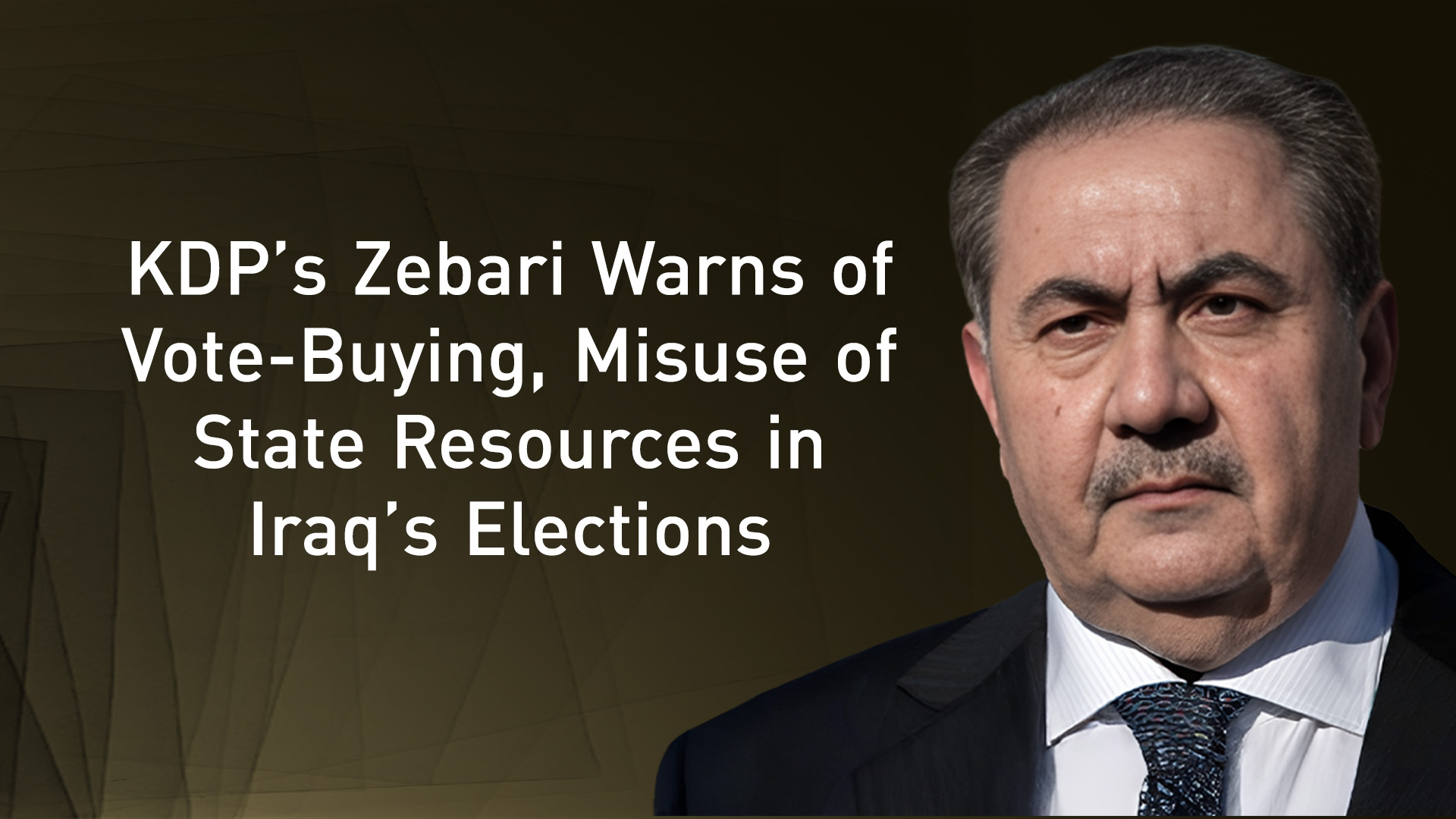KDP’s Zebari Warns of Vote-Buying, Misuse of State Resources in Iraq’s Elections
Zebari urged the Iraqi judiciary, UNAMI, and IHEC to take “strict measures against violators and publicly name them” to safeguard the integrity of the electoral process.

ERBIL (Kurdistan24) — Senior Kurdistan Democratic Party (KDP) politburo member and former Iraqi Foreign Minister Hoshyar Zebari on Saturday warned that Iraq’s upcoming elections risk being marred by fraud and misuse of state resources, calling on judicial and international bodies to intervene.
In a statement published on his official X account, Zebari accused political actors of exploiting government resources for electoral gain by “offering projects and contracts to certain businessmen, exempting them from state contracting regulations, and adding names to social welfare lists draining the country’s economy.”
He further alleged that massive sums of money are being funneled to candidates, while some groups are “buying voter cards from citizens,” which he said “confirms that the upcoming elections will be fraudulent.”
Zebari urged the Iraqi judiciary, the United Nations Assistance Mission for Iraq (UNAMI), and the Independent High Electoral Commission (IHEC) to take “strict measures against violators and publicly name them” to safeguard the integrity of the electoral process.
Iraq’s Electoral Challenges
Iraq has long struggled with electoral credibility, with previous votes plagued by allegations of vote-buying, intimidation, and manipulation of state resources. Reforming the system has been a key demand of mass protests since 2019, when demonstrators called for greater transparency, accountability, and a break from entrenched political corruption.
Iraq's electoral history has been marred by recurrent issues of fraud and misuse, undermining public trust in the democratic process. These challenges have persisted across various election cycles, highlighting systemic vulnerabilities.
In the 2018 parliamentary elections, reports indicated that candidates offered between $50 and $500 per vote, particularly in economically disadvantaged areas. Additionally, incentives such as food baskets, household appliances, and prepaid phone cards were distributed to sway voters. These practices were prevalent in rural regions, raising concerns about the integrity of the electoral process.
The 2021 elections witnessed the distribution of state-funded food baskets and services during the campaign period, leading to investigations by Iraq’s Integrity Commission. Fifteen cases were opened, focusing on instances where governors and ministers misused public resources for political gain.
The sale or purchase of biometric voter cards has been identified as a significant electoral crime. IHEC has warned that individuals involved in such activities could face criminal charges and disqualification from elections. In one notable case, a man in Nineveh province was arrested for trafficking over 1,100 voter cards, which could have been used for impersonation or vote suppression.
The 2010 parliamentary elections were marred by allegations of fraud, including the printing of 26 million ballots—35% more than needed—and the distribution of government land and gifts to secure votes. Accusations also surfaced regarding the registration of fabricated names to manipulate results. These claims led to widespread distrust and calls for electoral reforms.
Despite efforts to address electoral fraud, subsequent elections have continued to face similar challenges. In the 2021 elections, over 1,300 complaints were lodged, alleging vote fraud. While the elections were praised for being the smoothest in years, the unsubstantiated claims of voter fraud cast a shadow over the process.
These recurring issues underscore the need for comprehensive electoral reforms to ensure the integrity and credibility of Iraq's democratic processes.
The upcoming elections are viewed as a major test for Iraq’s political class, particularly amid public discontent over poor services, unemployment, and widespread perceptions of corruption. International observers, including UNAMI, have previously played a crucial role in monitoring Iraq’s elections to ensure fairness and encourage public trust.
Zebari’s remarks reflect mounting concerns among political leaders that the misuse of state institutions and financial inducements could undermine both voter confidence and the legitimacy of the results.
IHEC Moves Ahead with Final Preparations for November 11 Vote
IHEC has accelerated its logistical and technical preparations for the upcoming elections to ensure a smooth and secure process.
- Trial Voting Operations Completed Successfully: In a nationwide exercise on August 10, IHEC carried out its first trial voting across 1,079 polling centers, including one special and one “VIP” station. According to Amanj Aziz of the Sulaymaniyah IHEC office, all voting machines performed without issues. Notably, biometric fingerprint challenges were resolved through enhanced systems, offering reassurance ahead of the actual vote.
- Monitoring Early Campaign Violations: On August 21, IHEC formed a special committee to address early campaign violations after noticing candidate posters appearing prematurely across Baghdad and elsewhere. The official campaign period is scheduled to begin on October 8; violations will be dealt with under electoral law.
- Voter Card Distribution and Infrastructure Updates: The Commission disclosed that over two million biometric voter cards have already been printed and will be distributed in September to those who completed registration updates in 2024–2025.
- Voter Identity Protections in Place: IHEC issued strong warnings against the buying or selling of biometric voter cards. Advanced fingerprint and facial recognition technology in polling centers ensures that only legitimate cardholders can vote. Offenders face serious legal consequences, including disqualification of individuals or entire political lists, according to IHEC.
